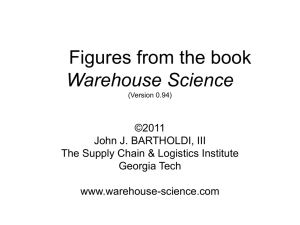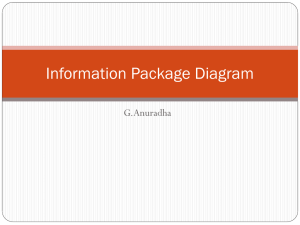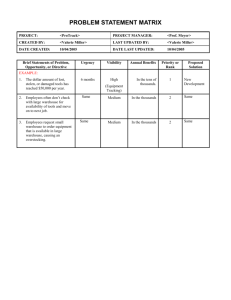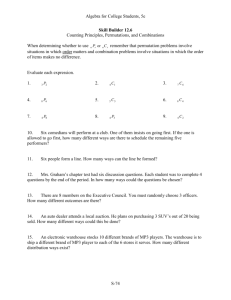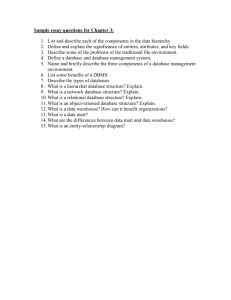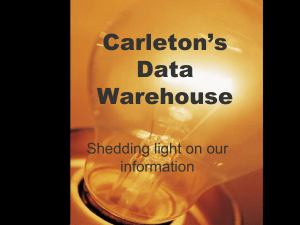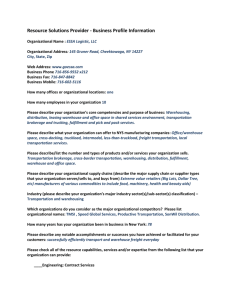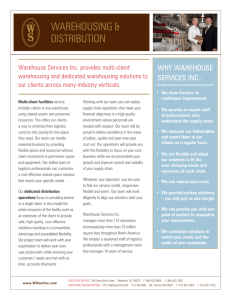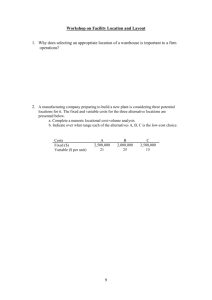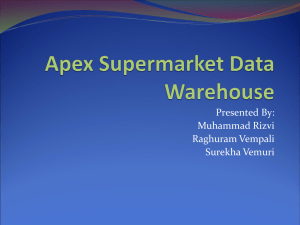Data Warehousing
advertisement
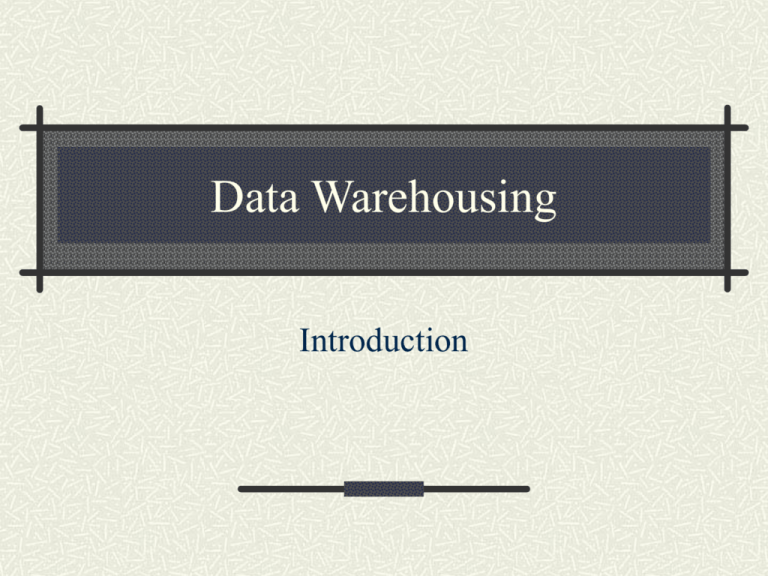
Data Warehousing Introduction Text and Resources The Data Warehouse Lifecycle Toolkit, Kimball, Reeves, Ross, and Thornthwaite Internet resources Data Warehousing Institute Teradata Institute Intelligent Enterprise Data Warehouse Approach An old idea with a new interest: Cheap Computing Power Special Purpose Hardware New Data Structures Intelligent Software Heightened Business Competition Data Warehouse “Queryable source of data in the enterprise” Common source of consistent organizational information Identify problems and opportunities User focused Retrieval focused Goals of the Course Understand the Data Warehouse philosophy Dimensional modeling Tools for Warehouse management Business intelligence Business practice What To Expect Help develop course expectations for the future Two tests Exercises and a semester project Graduate Presentation What is a data warehouse? A database filled with large volumes of cross-indexed historical business information that users can access with various query tools. The warehouse usually resides on its own server and is separate from the transactionprocessing or “runthe-business” systems. Purpose of a data warehouse Provides an architecture for the flow of data from operational systems to decision support systems DW involves a many record analysis, during which all data has to be locked Used to discover trends and patterns Present opportunities Identify problems ROI of data warehouses New insights into Customer habits Developing new products Selling more products Cost savings and revenue increases Cross-selling of products Less mainframe computer storage Identify and target most profitable customers Capital outlay and development/training time can be extraordinary. Quality of system output Levels of risk Intangibles Cio.com (middle ground) Course Outline Introduction and basic principles Data extraction: SQL data definition code Warehouse Architecture: Dimensional Modeling Data Cleansing: SAS Datastep coding Data Presentation: MS Analysis Services
